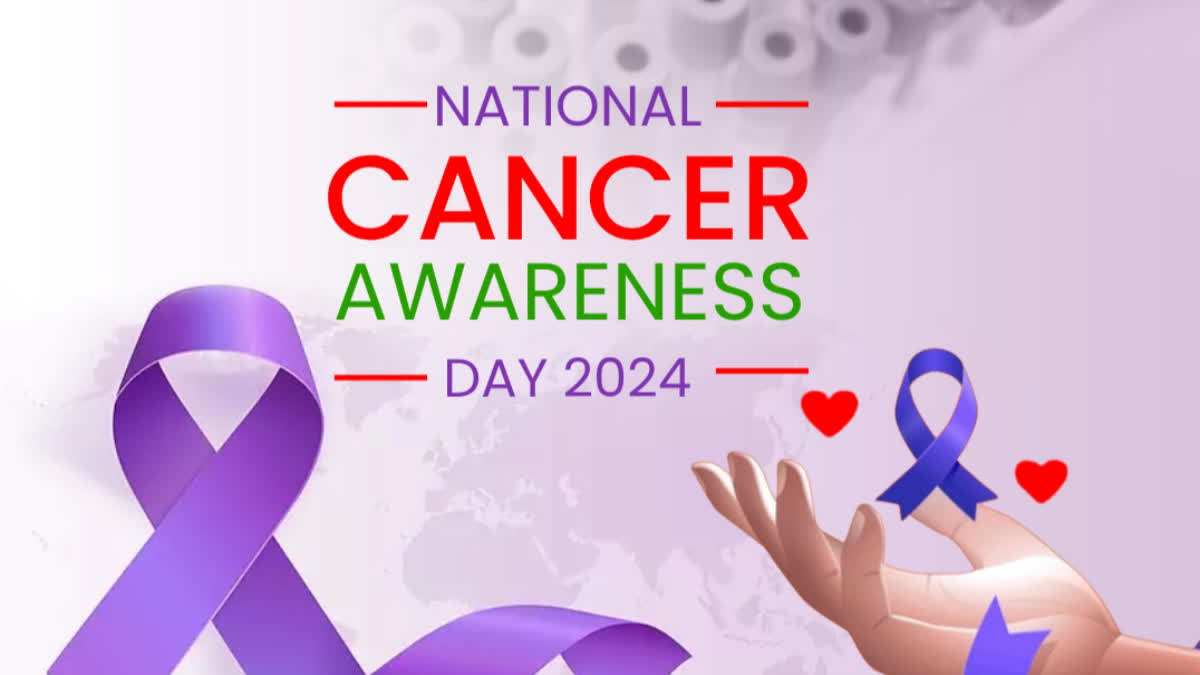Cancer cases in India have risen to an estimated 1.49 million in 2023 according to the National Cancer Registry Programme (NCRP) by the Indian Council of Medical Research. NCRP also ranks India the highest in the world for breast cancer deaths. Reportedly, 98,337 women lost their lives to breast cancer in 2022 alone.
Every year, India observes National Cancer Awareness Day on November 7. As we mark this day, it’s worth focusing on the innovations that could redefine early cancer detection and save countless lives. Among these breakthroughs is liquid biopsy, a promising diagnostic technology poised to transform the way we identify cancer. Unlike traditional biopsies, which can be painful and invasive, liquid biopsy offers a gentler yet powerful alternative, using a simple blood sample to reveal early signs of cancer across multiple organs.
What Is National Cancer Awareness Day?
National Cancer Awareness Day is observed in many countries, but in India, it was officially designated by the Ministry of Health and Family Welfare on November 7 from 2014 onwards. This day is dedicated to educating the public about cancer prevention, early detection, and treatment. Given the rising prevalence of cancer in India, the importance of this day cannot be overstated. Experts stress that lifestyle habits are increasingly linked to cancer risks, underscoring the need for early detection. Today, medical advancements are reshaping the field of cancer diagnostics, and one such groundbreaking technology is liquid biopsy.
Traditionally, cancer detection required invasive tissue biopsies that are often painful and complex in order to obtain affected tissue samples. However, healthtech innovation liquid biopsy bypasses this need by analyzing a simple blood sample to identify the presence of cancer cells. This non-invasive method is not only safer but also provides quicker results, offering a promising alternative for early diagnosis and management.
What Is Liquid Biopsy?
Dr. Ajay Bapna, Director of Medical Oncology at Bhagwan Mahaveer Cancer Hospital and Research Centre in Jaipur, says, “Liquid biopsy detects tiny fragments of DNA from cancer cells circulating in the blood, identifying tumours with less risk and discomfort for the patient.”
In traditional biopsy procedures, physicians collect tissue samples from suspected areas, which often involves surgery and can be painful and risky. Liquid biopsy, in contrast, uses a simple blood sample to detect circulating tumor DNA (ctDNA)—fragments of genetic material released when cancer cells die and enter the bloodstream. By analyzing ctDNA, doctors can identify not only the presence of a tumour but also the specific type and stage of cancer. This innovation reduces the need for invasive procedures and allows for quicker and safer testing.
Says Dr. Bapna, “Liquid biopsy is a breakthrough. It’s minimally invasive and suitable for early detection, especially in cases where traditional biopsies are challenging.” Patients benefit as well, experiencing less pain and anxiety with this method, while doctors can monitor cancer progression or remission more easily after treatment.
Why Is It Vital To India?
While liquid biopsy is currently limited to specialized labs in cities like Delhi, Bengaluru, Hyderabad and Ahmedabad, its potential for widespread cancer screening is vast. As the technology becomes more accessible across India, it could replace traditional biopsies as a primary screening tool, contributing significantly to early diagnosis and reducing cancer mortality rates.
Experts predict that within the next few years, liquid biopsy could become a standard screening tool in India's fight against the dreaded Big C. In our country, access to cancer diagnostics remains limited for many, especially in rural areas. Liquid biopsy has the potential to change this, since it can screen for cancer across multiple organs simultaneously.
This single-test, multi-organ screening ability makes it especially valuable in a country like ours, where healthcare infrastructure is often stretched thin. The method allows doctors to detect early signs of cancer in multiple organs, making it a comprehensive screening tool for high-risk populations.
How Liquid Biopsy Works
Liquid biopsy works by isolating ctDNA from a blood sample. When tumour cells die, they release genetic material into the bloodstream, which can then be analyzed to determine the type and nature of the tumour. This ctDNA carries specific genetic markers that indicate not only the presence of cancer but also its origin. Using advanced genomic sequencing, medical professionals can identify the DNA patterns associated with various cancer types, providing a roadmap for targeted treatment.
This technology is particularly useful for tracking cancer progression or recurrence. By taking periodic blood samples, doctors can monitor ctDNA levels to gauge whether cancer treatments are effective or if the disease is returning. This method offers a real-time, non-invasive way to keep cancer under surveillance, allowing for quick adjustments in treatment as needed.
Advantages Of Liquid Biopsy
- One of the greatest advantages of liquid biopsy is its ability to identify cancer at early stages. Detecting cancer sooner increases the chances of effective treatment and recovery, potentially saving lives.
- Unlike traditional biopsies, which often require surgery or invasive procedures, liquid biopsy is performed through a simple blood test. This minimizes patient discomfort and reduces the risks associated with more invasive testing.
- Liquid biopsy enables the detection of cancers across multiple organs in a single test, making it an efficient screening tool for comprehensive cancer detection, particularly beneficial for high-risk groups.
With technology advancing and awareness growing, India can look forward to a future where early cancer detection is the norm, not the exception. On National Cancer Awareness Day 2024, the message is clear: innovation in diagnostics can make the crucial difference between life and death in the fight against cancer.
Read more:



